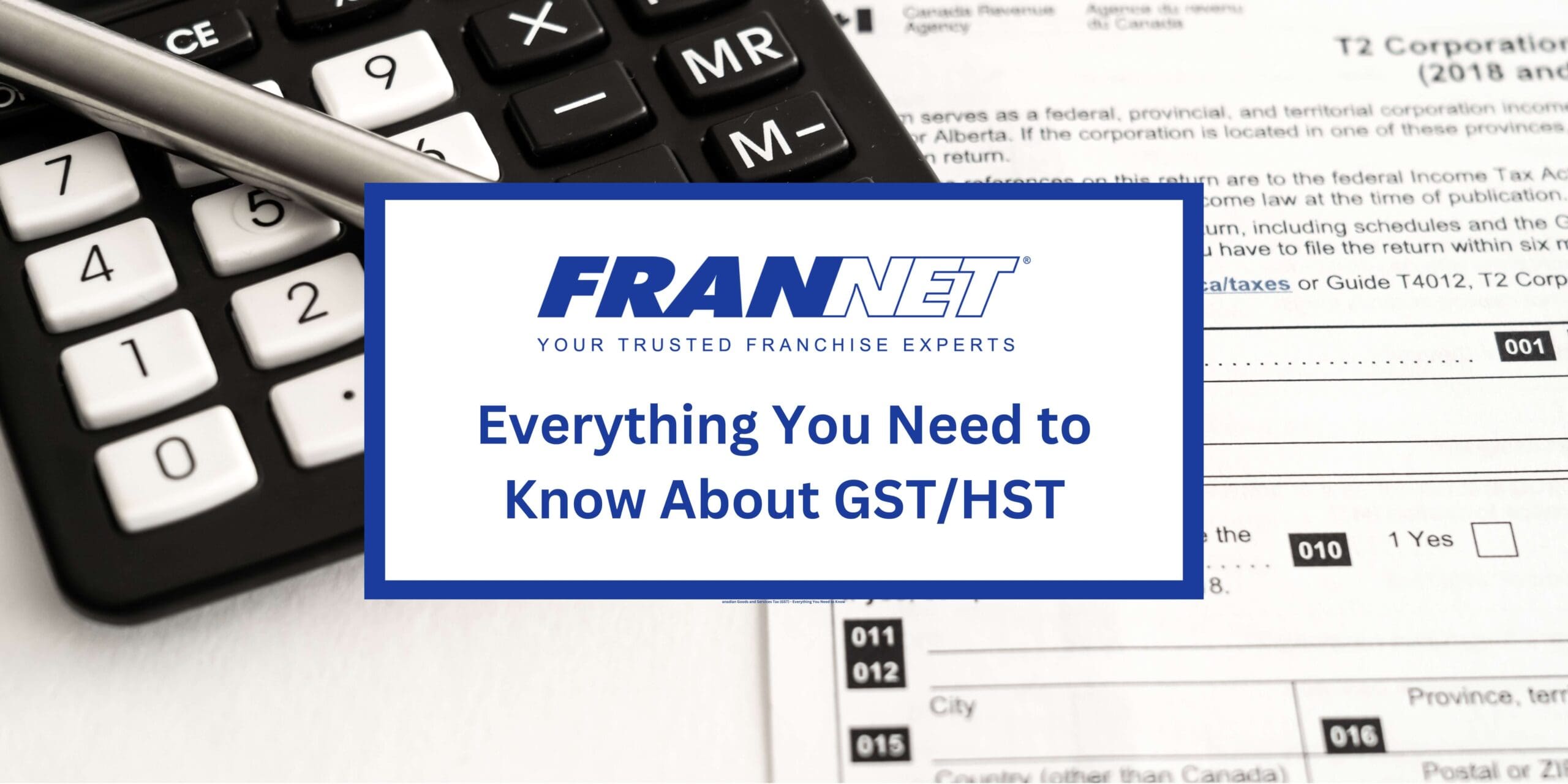When thinking about fun topics to discuss, taxes don’t usually make the top of the list. However, understanding the various tax codes that relate to you and your business is key to your success.
The Goods and Services Tax (GST) is a sales tax applied to most goods and services in Canada. It is also applicable to real property (e.g. land) and intangible personal property (e.g. trademarks and royalty payments).
It’s the businesses responsibility to collect and remit the GST. For everyday purchases, the tax is already included in the listed price, which makes the purchasing process simpler and more transparent for customers. In the case of a larger purchase or business transaction, the GST might be listed separate from the negotiated price.
Another name used for the GST is the HST (Harmonized Sales Tax), which is a combination of the GST and the PST (Provincial Sales Tax).
How Does the GST/HST Affect Canadian Businesses?
Tax codes have a reputation for being complex. The GST is no different. Business owners in Canada must be diligent to follow the rules to collect and pay the GST and HST when applicable.
Additionally, businesses are subject to pay the GST on many business purchases they make. Failing to understand the ins and outs of the GST means that they will likely lose out on money that they’re entitled to from programs such as claiming Input Tax Credits (ITC). For the same reason, it’s essential for businesses to keep detailed records if they want the credits they qualify to receive.
Having extensive documentation of your business spending over the year will not only make it easier for you to complete your tax return, but it will also give you peace of mind in case the Canada Revenue Agency (CRA) has any questions or performs an audit.
What is an ITC?
Definition –
The CRA states, “As a registrant, you can claim an ITC to recover the GST/HST paid or payable on the purchases and operating expenses related to your commercial activities.”
In other words, Input Tax Credits (ITCs) enable businesses to reclaim the GST/HST paid on purchases used to produce goods and services. It’s important to register your business since only registered businesses are able to claim ITCs.
Qualifications –
Zero-rated supplies qualify for ITCs, but exempt supplies do not. Additionally, purchases from small suppliers aren’t eligible for ITCs since small suppliers are not required to charge a GST in the first place.
Zero-rated supplies: These are goods and services that are charged a 0% GST. They include: groceries, agricultural products, fishery products, prescription drugs, some medical devices, feminine hygiene products, exports, and many international transportation services.
Exempt supplies: These are goods and services exempt from the GST and include: public transit, residential rent, and medical care. Businesses that only provide exempt supplies generally can’t register for a GST/HST account.
Imports & exports: Since the GST/HST is a Canadian sales tax it is generally added to imported goods, services, and intangible personal property. However, the GST does not apply to exports. Additionally, a business that is export-oriented might be able to avoid the GST/HST for domestic purchases and imports. Read more about that on the CRA’s page regarding imports and exports under “GST/HST relief programs”.
Examples –
Here are a few examples of purchases that a business can claim an ITC for:
- Fuel costs
- Freight charges
- Commercial rent
- Telephone fees
Keep in mind that these purchases are only eligible for ITCs if they were used for commercial activities.
What You Need to Know About Charging and Collecting GST/HST
The first step is understanding whether or not your business needs to register for a GST/HST account. According to the CRA, you must register if both of the following apply:
- You make taxable sales, leases, or other supplies in Canada (unless your only taxable supplies are of real property sold other than in the course of a business)
- You are not a small supplier
The CRA’s page on registering for the GST/HST provides extensive details and tables to help a business determine if they are considered a small supplier.
How Much is the GST in Canada?
As stated earlier, some provinces combine the Goods and Services Tax (GST) and Provincial Sales Tax (PST) into one Harmonized Sales Tax (HST).
For provinces that charge the taxes separately, the current GST rate in Canada is 5%.
Provinces/territories that charge a separate GST and PST:
- British Columbia
- Manitoba
- Northwest Territories*
- Nunavut*
- Quebec
- Saskatchewan
- Yukon*
- Alberta*
*The GST is the only sales tax collected in these regions.
Provinces that charge a combined HST:
- Ontario (13%)
- New Brunswick (15%)
- Newfoundland and Labrador (15%)
- Nova Scotia (15%)
- Prince Edward Island (15%)
Check out this table for a detailed breakdown of the GST, PST, and HST in Canada.
Considering Franchise Ownership in Canada?
Owning a franchise is a great way to achieve the dream of business ownership, but understanding the various tax codes can be a daunting task. Fortunately, franchises often provide the support and training franchisees need to set their business up for success – even in the area of taxes. After all, it’s in the franchise’s best interest to help each franchise location to succeed.
Are you ready to begin your entrepreneurial journey? FranNet has franchise consultants serving every Canadian province, and they’re ready to help you get started. Our goal is to match you with the perfect franchise, and we will offer resources, support, and guidance every step of the way. We’ll provide you with everything you need to make an informed decision. Schedule your free consultation today!

